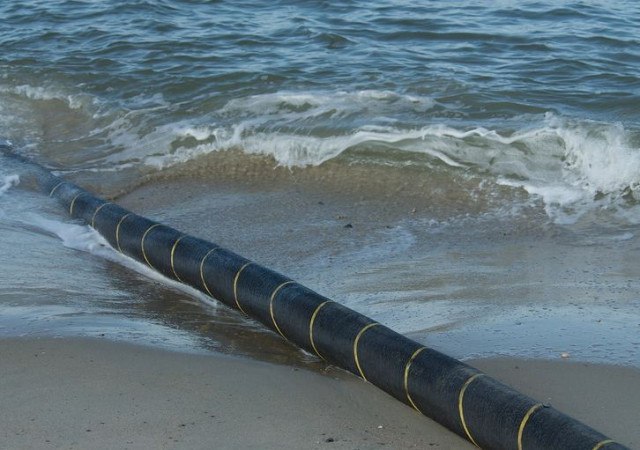NATO believes Russia may have mined cables in the North Sea
Russian ships 'behaved unusually' as they passed over key pipelines and cables

The North Atlantic Alliance has expressed "grave concerns" that Russia may have managed to mine critical undersea infrastructure in the North Sea, The Times reports.
The suspicions are based on data from companies that operate key oil and gas towers, pipelines, electricity and telecommunications cables.
"Sabotage on Dutch or Belgian cables has not yet been established, but explosives were found on a British cable at the beginning of the Ukrainian crisis," said Thomas De Spiegeler, a representative of the Belgian maritime security unit.
The Belgian newspaper De Tijd analysed maritime logs and published an investigation, according to which more than 160 Russian civilian vessels have made 945 suspicious manoeuvres over the past ten years, 749 of which were recorded within a kilometre of pipelines in the North Sea.
Another 72 suspicious actions were carried out in the vicinity of electricity cables, and the remaining 124 were around telecommunications cables.
Since the beginning of the year, the Russian trawler Kapitan Sokolov and four other ships have been "behaving unusually" when passing over key pipelines and cables in the North Sea, the newspaper said.
The vessels slowed down as they passed over the underwater infrastructure. According to the newspaper, they did so for reconnaissance and sabotage purposes.
"Russian vessels are already suspicious, even if they follow a standard route. Because every Russian vessel, even if it works for a private company, is working for the government anyway. Unusual routes do not always raise questions, but it is suspicious if they pass over pipelines and cables," De Spiegeler said.
Threats to undersea cables and pipelines have become a focus for security services in Western European countries after the September 2022 explosions on the Nord Stream 1 and 2 gas pipelines.
NATO has since become concerned about a possible Russian attack on submarine cables, which carry about 98% of Internet data and telephone traffic worldwide. Pipelines from Norway, which supply natural gas to the continent, were also under threat.
Background. Earlier, The Guardian wrote that Russia was preparing for an "underwater war" with NATO, putting all underwater cables and pipelines at risk.
If you have read this article to the end, we hope that means it was useful for you.
We work to ensure that our journalistic and analytical work is of high quality, and we strive to perform it as competently as possible. This also requires financial independence. Support us for only UAH 196 per month.
Become a Mind subscriber for just USD 5 per month and support the development of independent business journalism!
You can unsubscribe at any time in your LIQPAY account or by sending us an email: [email protected]



